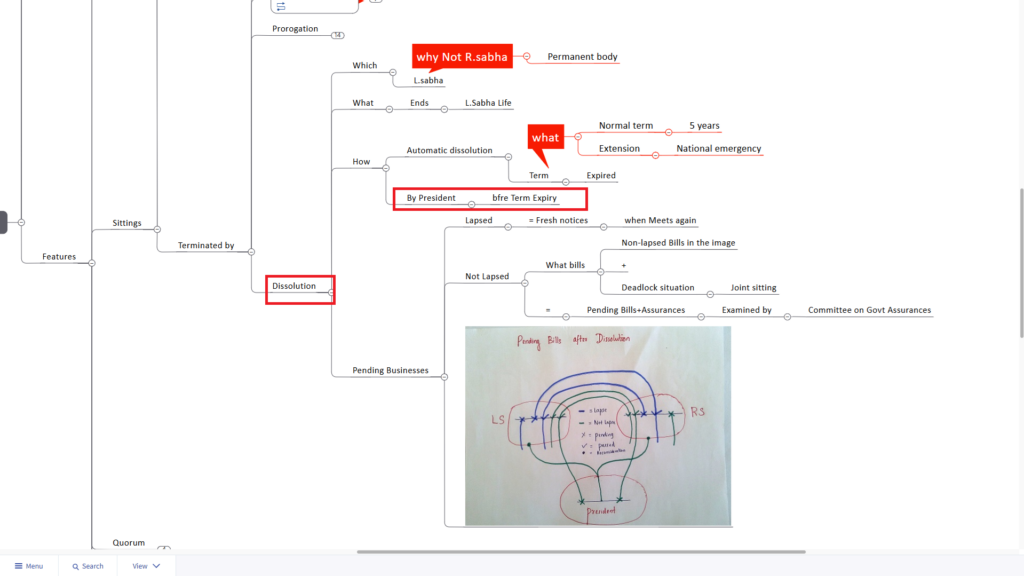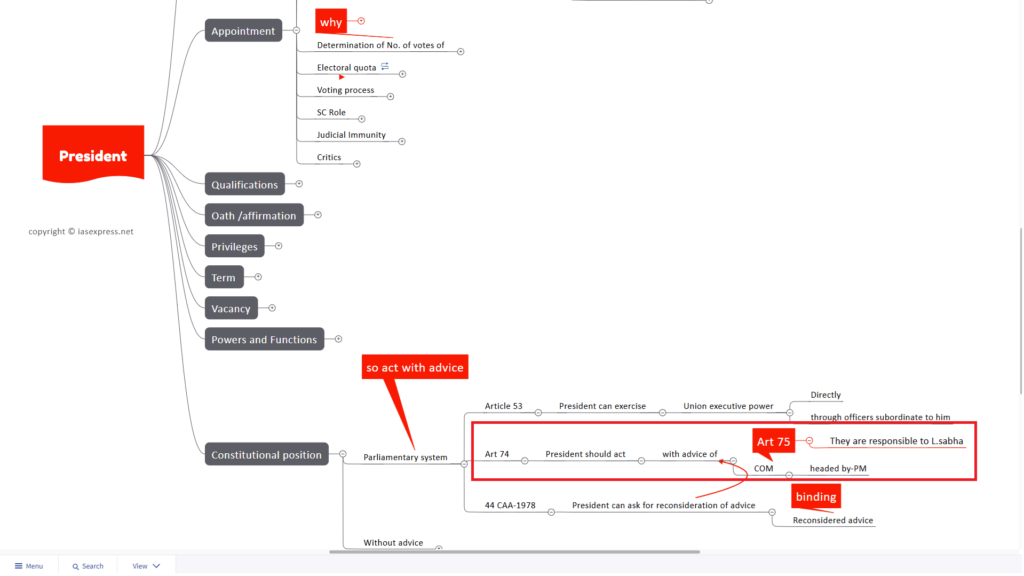With reference to the Indian Parliament, consider the following statements:
- A bill pending in the Lok Sabha lapses on its dissolution.
- A bill passed by the Lok Sabha and pending in the Rajya Sabha lapses on the dissolution of the Lok Sabha.
- A bill in regard to which the President of India notified his/her intention to summon the Houses to a joint sitting lapses on the dissolution of the Lok Sabha.
Which of the statements given above is/are correct?
(a) 1 only
(b) 1 and 2
(c) 2 and 3
(d) 3 only
Correct Answer: (b) 1 and 2
Explanation:
- Statement 1: A bill pending in the Lok Sabha lapses on its dissolution. This is correct. When the Lok Sabha is dissolved, all business including bills, motions, resolutions, notices, petitions pending before it or its committees lapse.
- Statement 2: A bill passed by the Lok Sabha and pending in the Rajya Sabha lapses on the dissolution of the Lok Sabha. This is also correct. Bills that originate and are passed in the Lok Sabha but are pending in the Rajya Sabha are considered lapsed upon the dissolution of the Lok Sabha.
- Statement 3: A bill in regard to which the President of India notified his/her intention to summon the Houses to a joint sitting lapses on the dissolution of the Lok Sabha. This is incorrect. If the President has notified the holding of a joint sitting before the dissolution of Lok Sabha, the bill does not lapse.
Learn more
- Lapsing of Bills in Indian Parliament:
- Dissolution of Lok Sabha: When the Lok Sabha is dissolved, all business including bills, motions, resolutions, notices, petitions pending before it or its committees lapse. This means that any bill pending in the Lok Sabha or passed by the Lok Sabha but pending in the Rajya Sabha lapses.
- Bills in Rajya Sabha: A bill pending in the Rajya Sabha but not passed by the Lok Sabha does not lapse upon the dissolution of the Lok Sabha.
- Joint Sitting Notification: If the President has notified the holding of a joint sitting before the dissolution of Lok Sabha, the bill does not lapse.
- Bills Passed by Both Houses: Bills that have been passed by both Houses but are pending assent from the President do not lapse.
- Returned Bills: Bills passed by both Houses but returned by the President for reconsideration do not lapse.
- Prorogation: Prorogation does not affect the bills or any other business pending before the House. All pending notices (other than those for introducing bills) lapse on prorogation and fresh notices have to be given for the next session.
Reflection in IAS EXPRESS




